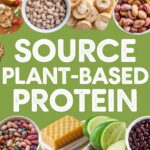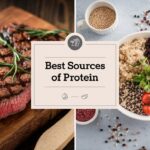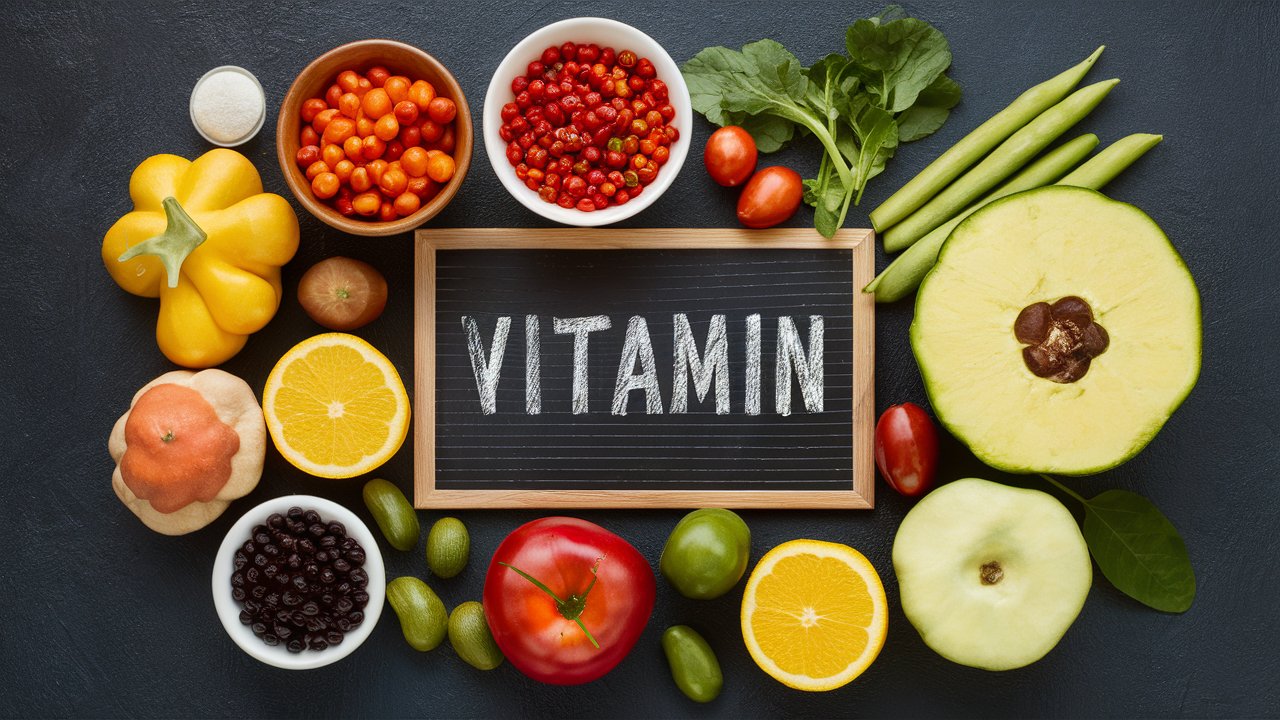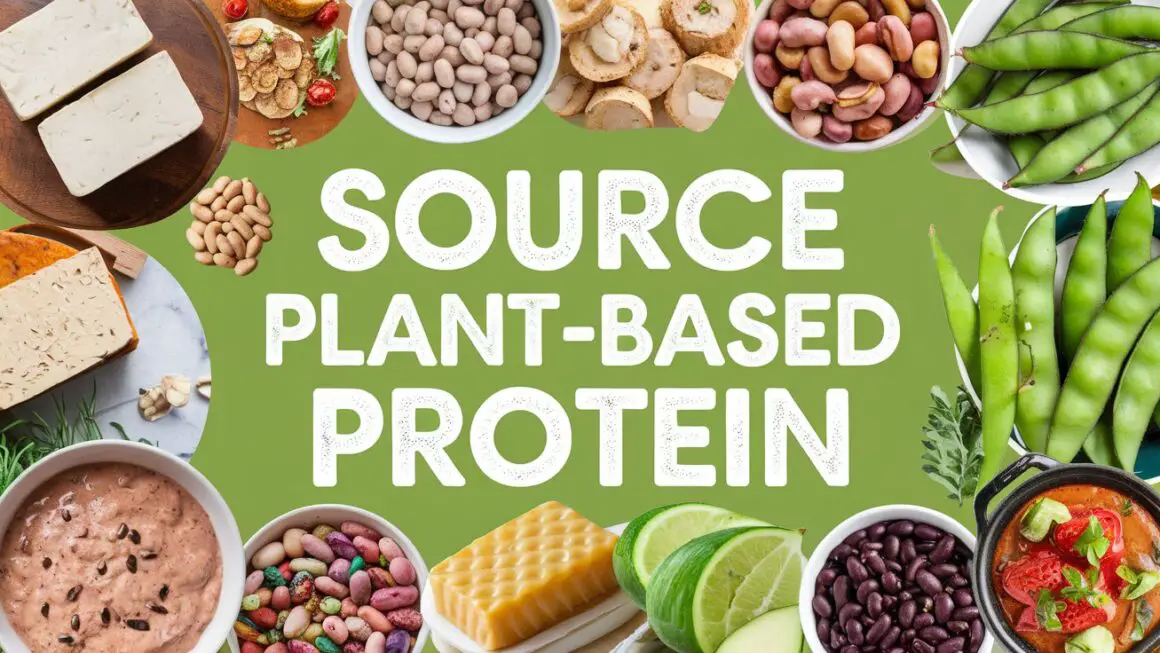Introduction
Definition of Vitamins
Vitamins are organic compounds that are essential in small quantities for various bodily functions, including growth, digestion, and nerve function. They are classified as either fat-soluble or water-soluble, which determines how they are absorbed and stored in the body.
Importance of Vitamins for Human Health
Vitamins play critical roles in maintaining health and preventing disease. They are involved in the formation of skin, bone, and muscle, as well as in the production of hormones and enzymes. A lack of essential vitamins can lead to a range of health issues, from weakened immune systems to serious chronic conditions.
Overview of Vitamin Sources
The primary sources of vitamins are dietary, with fruits, vegetables, meats, dairy, and grains all providing various essential nutrients. Some vitamins are also synthesized in the body or fortified in foods and supplements to ensure adequate intake.
Fat-Soluble Vitamins
Vitamin A
Functions
Vitamin A is crucial for maintaining healthy vision, skin, and immune function. It plays a role in the formation of the heart, lungs, and kidneys and supports cellular communication.
Food Sources
Key sources of Vitamin A include:
- Animal Sources: Liver, fish oils, eggs, and dairy products.
- Plant Sources: Carrots, sweet potatoes, spinach, and kale, which contain beta-carotene that the body converts into Vitamin A.
Vitamin D
Functions
Vitamin D helps regulate calcium and phosphate in the body, which are necessary for maintaining healthy bones and teeth. It also supports immune function and has been linked to mood regulation.
Food Sources
Major sources of Vitamin D include:
- Sunlight: The skin synthesizes Vitamin D upon exposure to sunlight.
- Food: Fatty fish like salmon and mackerel, fish liver oils, fortified dairy products, and egg yolks.
Vitamin E
Functions
Vitamin E acts as an antioxidant, protecting cells from damage caused by free radicals. It is important for immune function and skin health.
Food Sources
Sources rich in Vitamin E include:
- Nuts and Seeds: Almonds, sunflower seeds, and hazelnuts.
- Vegetable Oils: Wheat germ oil, sunflower oil, and safflower oil.
- Leafy Greens: Spinach and broccoli.
Vitamin K
Functions
Vitamin K is essential for blood clotting and bone metabolism. It helps in the regulation of calcium levels in the blood.
Food Sources
Sources of Vitamin K include:
- Leafy Greens: Kale, spinach, and broccoli.
- Fermented Foods: Natto and sauerkraut.
- Animal Products: Liver and meat.
Water-Soluble Vitamins
Vitamin C
Functions
Vitamin C is an antioxidant that aids in the repair of tissues, the absorption of iron, and the maintenance of healthy skin. It is also vital for immune function.
Food Sources
Common sources of Vitamin C include:
- Fruits: Oranges, strawberries, kiwi, and guava.
- Vegetables: Bell peppers, broccoli, and Brussels sprouts.
B Vitamins Complex
Vitamin B1 (Thiamine)
Functions
Thiamine is essential for energy metabolism and nerve function. It helps convert carbohydrates into energy and supports muscle contraction and nerve signaling.
Food Sources
Thiamine-rich foods include:
- Whole Grains: Brown rice and oats.
- Meats: Pork and liver.
- Legumes: Beans and lentils.
Vitamin B2 (Riboflavin)
Functions
Riboflavin supports energy production and the metabolism of fats, drugs, and steroids. It also promotes healthy skin and eyes.
Food Sources
Key sources include:
- Dairy Products: Milk and cheese.
- Eggs and Lean Meats
- Green Vegetables: Spinach and broccoli.
Vitamin B3 (Niacin)
Functions
Niacin helps convert nutrients into energy and is involved in DNA repair and stress responses.
Food Sources
Niacin can be found in:
- Meat and Fish: Chicken, turkey, and tuna.
- Whole Grains: Brown rice and barley.
- Nuts and Seeds
Vitamin B5 (Pantothenic Acid)
Functions
Pantothenic acid is vital for synthesizing coenzyme A, a molecule that helps in fatty acid metabolism and the synthesis of hormones.
Food Sources
Pantothenic acid sources include:
- Meats: Chicken and beef.
- Whole Grains and Legumes
- Avocados
Vitamin B6 (Pyridoxine)
Functions
Pyridoxine is involved in amino acid metabolism, red blood cell production, and the synthesis of neurotransmitters.
Food Sources
Pyridoxine is found in:
- Poultry and Fish: Chicken and salmon.
- Potatoes and Bananas
- Chickpeas
Vitamin B7 (Biotin)
Functions
Biotin supports metabolism and is essential for healthy hair, skin, and nails.
Food Sources
Biotin-rich foods include:
- Egg Yolks and Organ Meats
- Nuts and Seeds
- Soybeans and Whole Grains
Vitamin B9 (Folate)
Functions
Folate is crucial for DNA synthesis and repair, cell division, and growth. It is especially important during pregnancy for fetal development.
Food Sources
Folate sources are:
- Leafy Greens: Spinach and lettuce.
- Citrus Fruits and Legumes
- Fortified Grains
Vitamin B12 (Cobalamin)
Functions
Cobalamin is essential for nerve tissue health, brain function, and red blood cell production.
Food Sources
Vitamin B12 is found in:
- Animal Products: Meat, eggs, and dairy.
- Fortified Plant-Based Foods
Symptoms and Signs of Vitamin Deficiency
General Symptoms
Common signs of vitamin deficiency include fatigue, weakness, and a general feeling of being unwell. Hair loss, brittle nails, and skin issues may also indicate a deficiency.
Specific Deficiency Symptoms
Vitamin A Deficiency
- Night blindness
- Dry skin and eyes
- Increased susceptibility to infections
Vitamin D Deficiency
- Bone pain and muscle weakness
- Frequent infections
- Depression
Vitamin E Deficiency
- Muscle weakness
- Vision problems
- Immune system impairment
Vitamin K Deficiency
- Easy bruising
- Excessive bleeding
- Osteoporosis
Vitamin C Deficiency
- Scurvy (bleeding gums and joint pain)
- Poor wound healing
- Anemia
B Vitamins Deficiency
- B1: Beriberi, Wernicke-Korsakoff syndrome
- B2: Cracked lips, sore throat
- B3: Pellagra, skin rashes
- B5: Fatigue, irritability
- B6: Anemia, depression
- B7: Dermatitis, hair loss
- B9: Neural tube defects, megaloblastic anemia
- B12: Pernicious anemia, neurological issues
Causes and Risk Factors for Vitamin Deficiency
Dietary Factors
- Poor diet lacking in fruits and vegetables
- Vegan or vegetarian diets without proper supplementation
- Excessive alcohol consumption
Lifestyle Factors
- Sedentary lifestyle
- High stress levels
- Smoking and substance abuse
Biological Factors
- Age-related changes
- Pregnancy and breastfeeding
- Genetic predispositions
Diagnosis and Tests for Vitamin Deficiency
Blood Tests
Blood tests are the primary method for diagnosing vitamin deficiencies, measuring the levels of specific vitamins in the bloodstream.
Physical Examinations
Doctors may perform physical exams to identify symptoms related to vitamin deficiencies, such as skin and eye checks.
Medical History Evaluation
A thorough review of a patient’s medical history, including diet and lifestyle, helps identify potential deficiencies and risk factors.
Treatment Options for Vitamin Deficiency
Dietary Adjustments
Improving diet by including a variety of fruits, vegetables, meats, and grains can address many vitamin deficiencies.
Supplementation
Supplements are recommended for individuals who cannot meet their vitamin needs through diet alone, such as vitamin D for those with limited sun exposure.
Medical Interventions
In severe cases, medical interventions like injections or intravenous therapy may be necessary to quickly correct deficiencies.
Preventive Measures for Vitamin Deficiency
Balanced Diet
Eating a well-rounded diet that includes all food groups ensures a supply of essential vitamins.
Regular Health Check-Ups
Routine medical check-ups help detect deficiencies early and allow for timely intervention.
Lifestyle Modifications
Incorporating exercise, reducing stress, and avoiding harmful substances contribute to better overall health and vitamin absorption.
Personal Stories or Case Studies
Case Study 1: Overcoming Vitamin D Deficiency
Jane, a 35-year-old woman, suffered from chronic fatigue and frequent colds. After a blood test revealed a vitamin D deficiency, she began taking supplements and increased her time outdoors. Within months, her symptoms improved significantly.
Case Study 2: Managing Vitamin B12 Deficiency
Tom, a 50-year-old vegetarian, experienced memory problems and fatigue. A medical evaluation showed a vitamin B12 deficiency, and after starting supplementation, his cognitive function and energy levels returned to normal.
Expert Insights
Advice from Nutritionists
“Ensuring a balanced diet rich in diverse foods is key to preventing vitamin deficiencies,” says Dr. Lisa Brown, a registered nutritionist. “Supplements can help, but food should always be the first source.”
Quotes from Medical Professionals
“Vitamin deficiencies can have significant health impacts, but they are preventable and treatable with the right approach,” states Dr. Mark Johnson, a leading expert in nutrition.
Conclusion
In conclusion, vitamins are vital for maintaining good health, and understanding their sources is crucial for preventing deficiencies. A balanced diet, regular health check-ups, and a healthy lifestyle are essential for ensuring adequate vitamin intake. By staying informed and proactive, individuals can safeguard their health and well-being.
FAQs
What are the main sources of vitamins for humans?
The primary sources of vitamins are food, including fruits, vegetables, meats, dairy products, and grains. Supplements and fortified foods also contribute to vitamin intake.
How can I tell if I have a vitamin deficiency?
Symptoms of vitamin deficiency vary but often include fatigue, weakness, and changes in skin, hair, and nails. Consult a healthcare provider for diagnosis and treatment.
Are vitamin supplements necessary?
Supplements may be necessary for individuals with specific dietary restrictions or health conditions that prevent adequate vitamin intake from food alone.
What is the difference between fat-soluble and water-soluble vitamins?
Fat-soluble vitamins (A, D, E, K) are stored in the body’s fat tissues, while water-soluble vitamins (C and B complex) are not stored and need regular replenishment through diet.
How do lifestyle choices affect vitamin levels?
Lifestyle factors such as diet, exercise, stress levels, and substance use can impact vitamin absorption and overall health. Making healthy choices can help maintain adequate vitamin levels.














